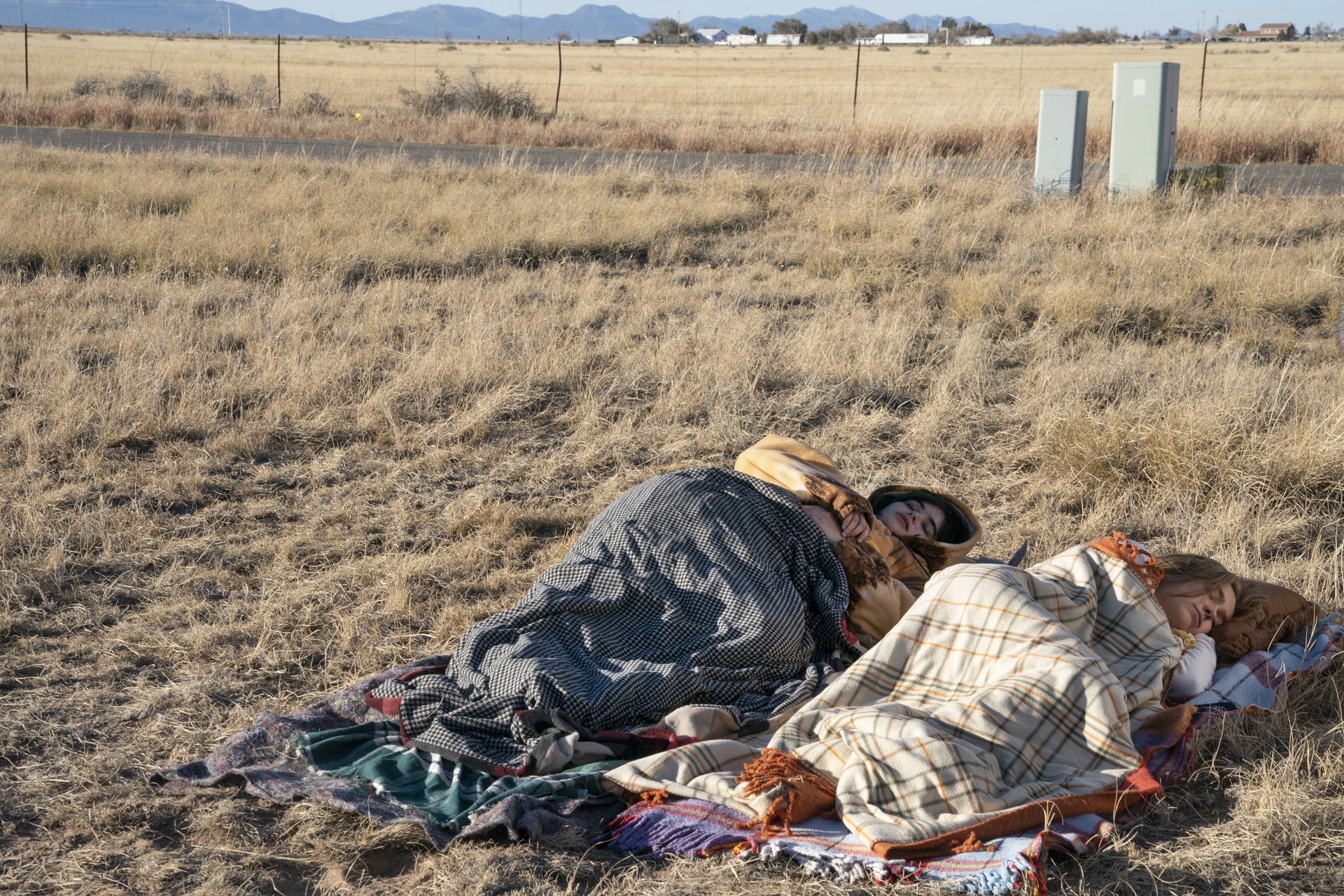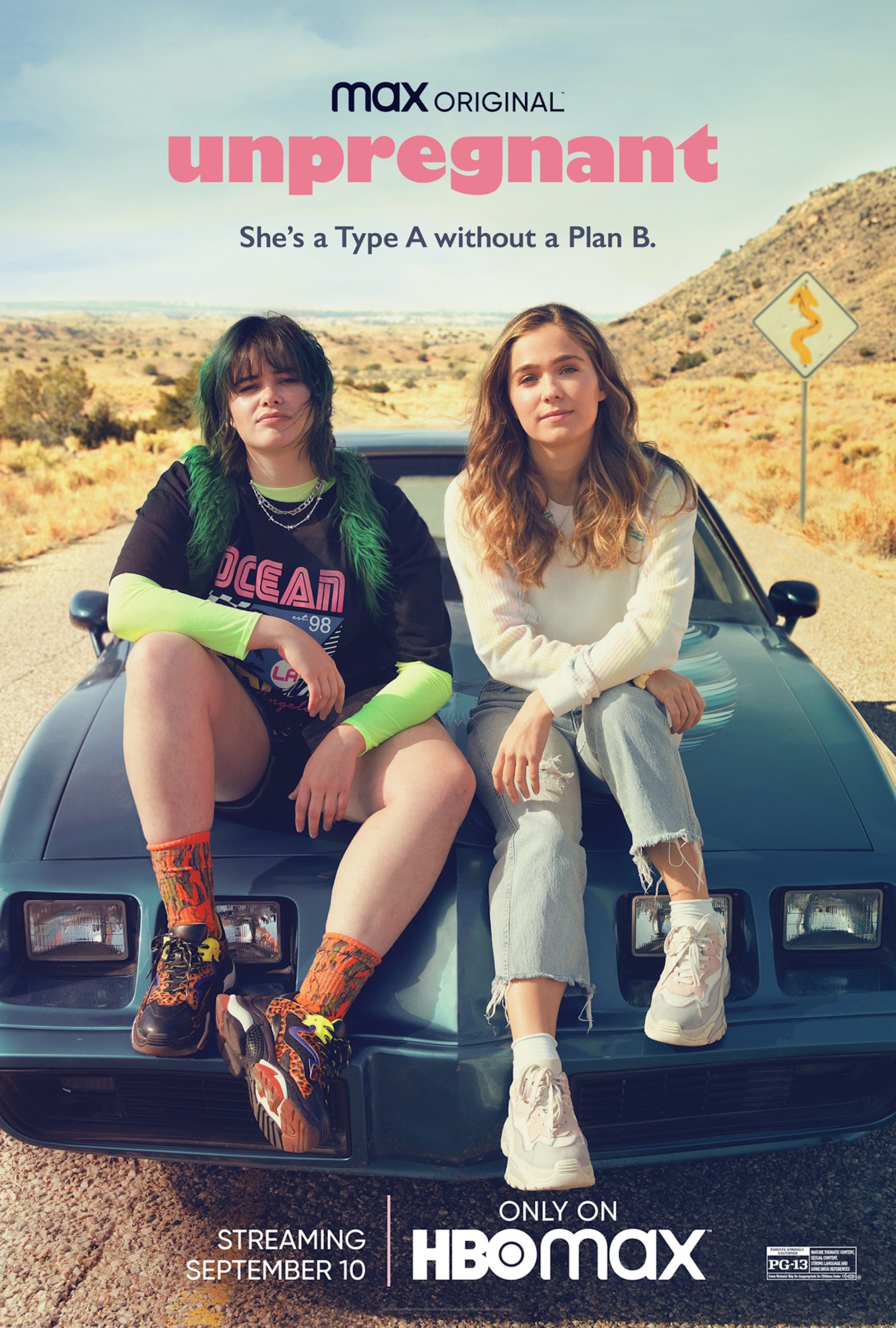Veronica Clarke sits in the tiny, tiled stall of her high school bathroom as she waits for her future to be determined by a piece of plastic in her hand. “You’ll be fine,” she tells herself, mentally retracing her steps. “You always use a condom.” Her thoughts were interrupted as the door barged open, startling Veronica and sending the pregnancy test across the floor. It’s found by her childhood best friend Bailey, who offers comfort, but once she discovers the test is Veronica’s she starts to joke around: “Oh no, is it Kevin? Who’s the daddy? Whose penis is it?” When a blue cross appears on the test indicating that Veronica is pregnant they both grow quiet. The opening scene in Unpregnant, which premieres today on HBO Max, is one of many that blurs the line between laughter and tears. It begs the question: can a movie about something as serious as abortion also be funny?
Rachel Lee Goldenberg’s latest film, starring Barbie Ferreira and Haley Lu Richardson, captures not only the weight of the situation that Veronica finds herself in, but the normalising humour through which her story is told. This scene sets the tone for the movie, which is neither a heartbreaking tear-jerker about the morals of abortion or a meditation on the trauma we often associate with the procedure. It’s a story about a 17-year-old award-winning, almost valedictorian, who doesn’t take her situation lightly, but knows exactly what she wants to do — get an abortion.
The film dispenses with the usual pained back and forth, the ‘should I or shouldn’t I?’ There is no moralising. What drives the story is access to a safe and legal abortion, a very pertinent topic for the times. Veronica lives in Missouri, and the closest place she’s able to get one without informing her “Jesus freak” parents is Albuquerque, New Mexico. The 15 hour, 1000 mile, adventure-filled road trip that follows is a hilariously wild ride born out of necessity, that changes both Veronica and Bailey’s lives and brings the estranged friends closer together.
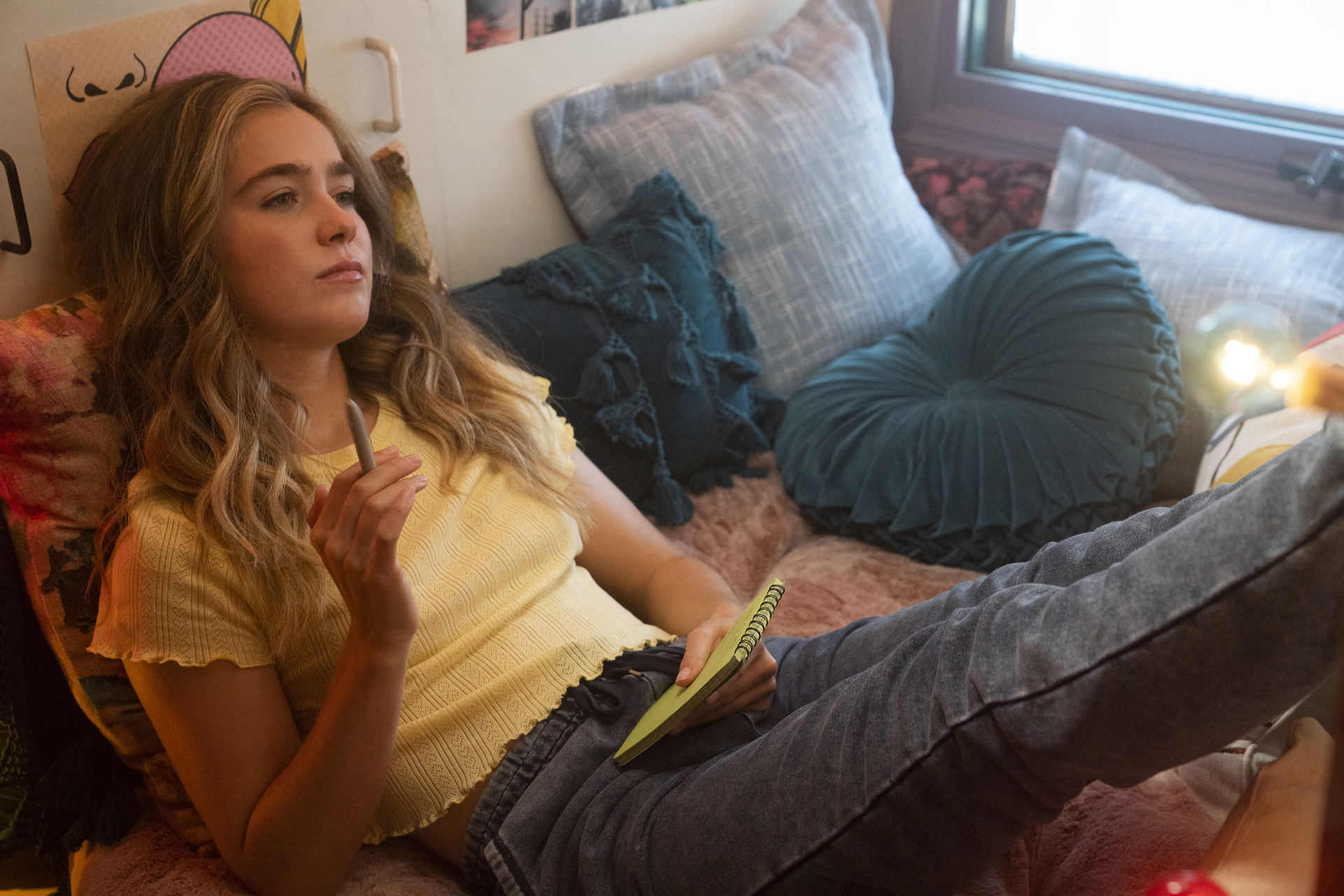
Haley, the 25-year-old actress who plays Veronica, is quickly becoming one of Hollywood’s rising young stars, and is known for her roles in Split, Columbus, Support the Girls and Five Feet Apart. In the latter she played a hospital-bound teen with cystic fibrosis, who falls in love with Will (Cole Sprouse), another patient with the same illness. As with Five Feet Apart, Haley knew that in taking on the role of Veronica she would be challenged from the outset.
“The thing that drew me to it was also the thing that made me really nervous about it,” Haley said during a Zoom call from LA. “I think it’s extremely ambitious to explore all of the things that this movie explores within the tone of this ‘teen road trip’ movie. But I was also like, if it’s done right and if we do find that balance, then it can be something that a bunch of people will watch and it can start real open and honest conversations.”
Haley prepared for her role by researching abortion policies in the US and watching YouTube videos posted by women, sharing their experiences of abortion and the way they felt afterwards. She knew that in order to tell Veronica’s story in a way that felt truthful, she’d have to fully understand the certainty of Veronica’s decision and the relief she felt after her procedure. “It was really important for me to not ever take Veronica’s situation lightly because she’s not taking it lightly,” Haley says, “even though it’s clear what she wants to do and the choice that is right for her.”
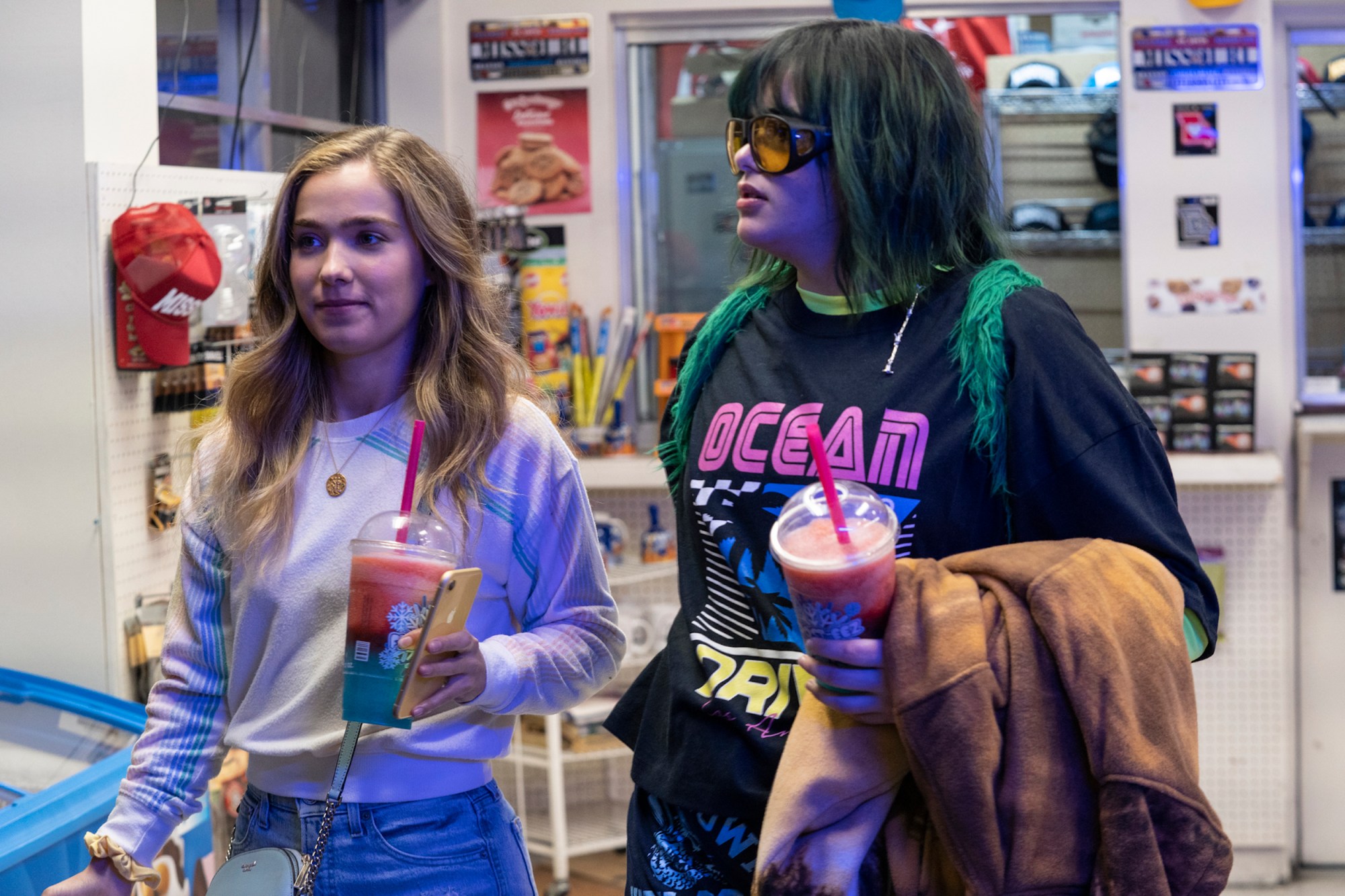
The full spectrum of emotions that a woman might feel in regards to abortion, and particularly the sense of relief Veronica experiences, isn’t ever reflected in the documentaries we’re fed in sex ed class or in most dramatisations that touch on the topic. One of the more recent films to explore abortion was 2019’s Unplanned, which told the story of Abby Johnson, a Planned Parenthood director who was pro-choice until she became pregnant herself. While the majority of films in which abortion is explored are not so directly motivated by an anti-choice narrative, it’s sadly still rare for a movie to cover the topic without patronising the perspective of the woman or using her experience as just a plot driver.
“Dark stories, which are so valid and amazing, really made it seem like sadness was the only way to react to an abortion — to be deeply affected by it, to be deeply traumatised by it, to be really on the fence about your decision, not knowing what to do and grappling with that,” says Barbie, the 23-year-old actress who stole the show in Euphoria and makes her film debut as Bailey in Unpregnant. “I think there’s room for that, but the fact that it makes up for almost all of the abortion stories is a little problematic, because one in four women will have an abortion, or have had an abortion. And people have a whole range of emotions. It’s not supposed to be shamed, or so shameful that you are assigned an emotion to it.”
You don’t have to feel heartbroken, regret or guilt.”
Unpregnant sits alongside a handful of recent releases (Saint Francis, Never Rarely Sometimes Always) that refuse to give any validity to the idea of abortion as a taboo. But what makes this movie unique is the way Goldenberg uses jokes and funny moments to create a colourful, humanising effect, while also giving a realistic look at the medical and logistical challenges of having an abortion in 2020.
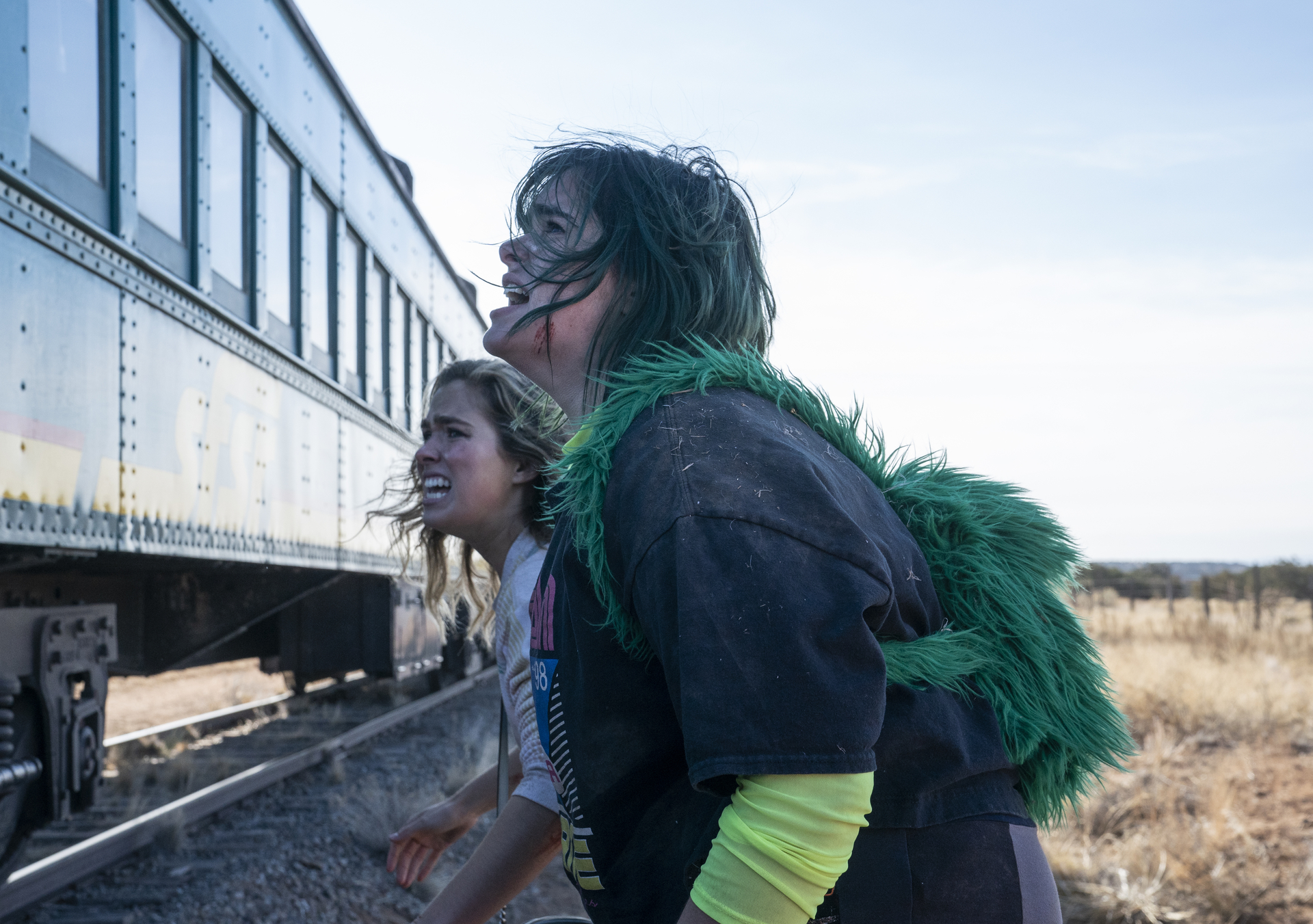
“It’s is very educational in that you know exactly what happens in an abortion, you know the problems with access and healthcare,” Barbie continues. “This movie is going to start a conversation. And hopefully people come out of it learning something new, and feeling like they have a different perspective on something they may not have had any information about before.”
The film, Barbie says, is sure to be controversial, but she’s not phased by potential criticism. Her character, Bailey, isn’t either. She provides a counterweight to the pressure-filled social dynamics of teen life that cause Veronica to feel like she needs to keep her pregnancy secret. Bailey doesn’t “buy into the bullshit of high school” because she doesn’t care what other people think about her — and she reminds her friends that they shouldn’t either. But in the same way that Bailey helps Veronica reconsider her values and relationships, Veronica’s thoughtful prodding allows Bailey to reveal her more vulnerable side. As they pull into the clinic in Albuquerque, it becomes clear that Unpregnant is not just a movie about abortion, it’s a story about growing up, overcoming fears and having difficult conversations — and the importance of meaningful friendships to get us through it.
“[Bailey and Veronica] are polar opposites, but they have this bond and history together,” Haley says. “Being away from each other, growing up and building up all these separate personal insecurities like shields, then coming back together and being forced to see all of those things that they’ve run away from, all those truths that they haven’t accepted about themselves… they really do become so much more comfortable with who they are. That’s the beautiful thing about true friendship.”
